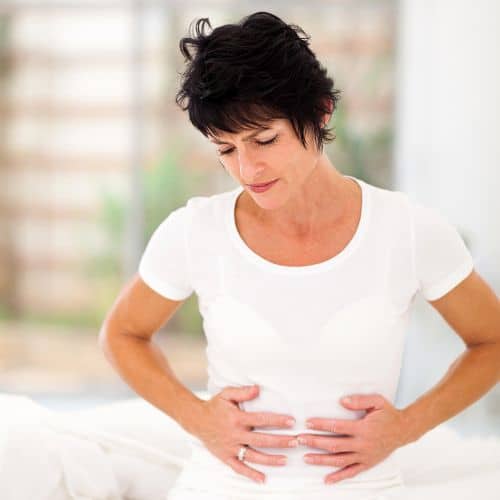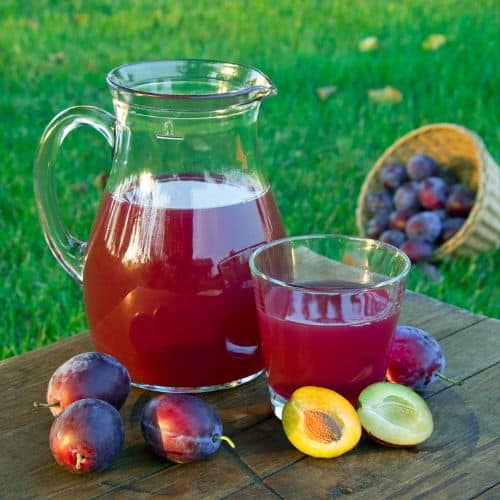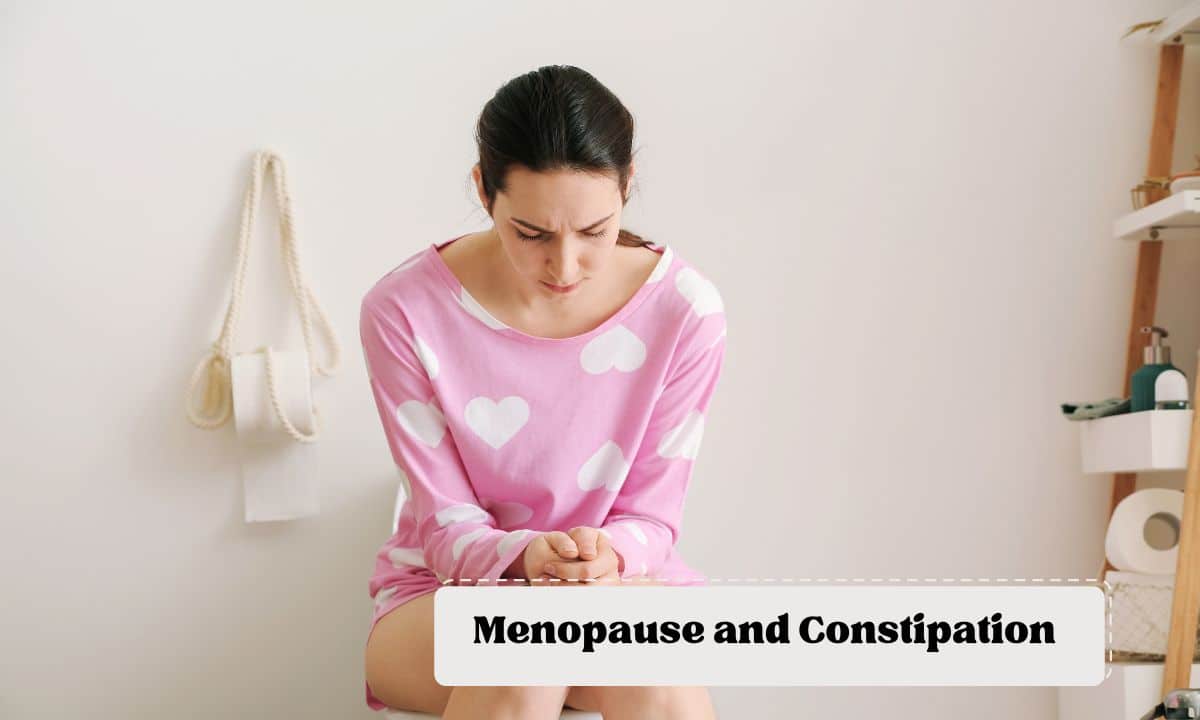Menopause and Constipation: Causes and Treatment
Menopause, the inevitable phase in every woman’s life, brings with it an abundance of changes — some more noticeable than others.
Table of Contents
ToggleOne of these differences, often overlooked, is the alteration to digestive health — specifically constipation.
You may wonder how menopause and constipation are linked. Well, it’s time to unravel this mystery. This blog aims to shed light on this under-discussed aspect of menopause and provide you with insights and tips to manage it, ensuring your transition into this new stage is as comfortable as possible.
Causes of Constipation During Menopause
Constipation is common during menopause and is often attributed to hormonal and lifestyle changes.

Increased Cortisol
Before menopause, cortisol levels are regulated by estrogen. As estrogen declines, cortisol levels are likely to rise. This increase in this stress hormone is recognized as a trigger for gastrointestinal disorders.
Stress and Anxiety
Menopause is a time of transition and — even without hormonal changes — can be accompanied by feelings of stress and anxiety as a result. In a 2018 study, researchers found that psychological stress significantly affects digestive health. Thus, mental well-being is essential to keeping your bowels functioning well.
Age
As we age, our digestive systems naturally slow down. This decrease in metabolism can also contribute to the issue.
Physical Inactivity
Lack of physical activity is also a well-known cause of constipation. Movement is important for optimal digestion and regular bowel movements as well as other aspects of menopause.
Medications
Certain medications — including some blood pressure or depression drugs — can cause constipation. Be sure to talk to your doctor about how your medications might be contributing to the problem.
Practical Tips for Managing Menopause Constipation
Dietary Changes
Eat More Fiber
Eating more fiber-rich foods is key to combating this issue. Insoluble fiber helps move food through the intestines. Soluble fiber absorbs water, which helps in stool formation. This means that both types of fiber work together to help the body excrete waste more regularly.

Tips for increasing fiber in your diet:
- Incorporate whole grains: Opt for whole-grain versions of bread, rice, and pasta. These are significantly higher in fiber than their white counterparts.
- Fruit and vegetable intake: Aim to consume at least five portions of fruit and vegetables each day. These are loaded with fiber, aiding in digestion.
- Legumes are your friends: Beans, lentils, chickpeas, and other legumes are excellent sources of fiber. Add them to salads, soups, or stews.
- Nuts and seeds: Snack on nuts and seeds or sprinkle them on your dishes. These tiny foods might seem insignificant, but they pack a punch of fiber.
- Add oatmeal, legumes, and other sources of soluble fiber: This type of fiber draws water to your gut, which helps soften stools.
Other Helpful Foods
Avocado, flax seeds, nuts, and olive oil are all excellent sources of fatty acids that help lubricate stools, promoting smooth and comfortable bowel movements.
Drink Prune Juice

Prune juice is a natural laxative because it helps soften and loosen stools.
Drink Enough Water
It’s always important to stay hydrated for good health, but this is amplified during menopause. Dehydration contributes to constipation, creating an uncomfortable cycle of discomfort and distress.

Drink at least eight glasses of water daily to ensure that stools remain soft and well-lubricated as they move through your intestine.
Exercise Regularly
Physical activity helps keep the bowels functioning properly and efficiently. Any form of movement will help, even just walking.
Use a Toilet Stool
The squatting position is believed to have benefits for digestion and elimination. If you want to experience the advantages of squatting without actually doing it, consider using a toilet stool*.
This simple device raises your knees above your hips while sitting on the toilet, placing you in an optimal position for easier bowel movements. Give it a try — you may be pleasantly surprised by the increased comfort and ease.

Over-the-Counter Medications
When lifestyle changes and natural remedies are not enough, you might need the help of over-the-counter medications. Here are some options:
- Bulk-forming laxatives: These fiber supplements, such as psyllium (Metamucil), help increase the bulk and improve the consistency of your stools, making them easier to pass.
- Stool softeners: As the name suggests, products like docusate sodium (Colace) moisten the stool, making it easier for it to move through the intestines.
- Lubricant laxatives: These products, such as mineral oil, work by coating the stool and the lining of the intestine to enable the stool to move through more easily.
- Stimulant laxatives: Medications like bisacodyl (Dulcolax) and sennosides (Senokot, Ex-Lax) stimulate the muscles in the intestines to contract, helping move stool along.
- Osmotic laxatives: These help draw water into the colon to soften the stool. Examples include polyethylene glycol 3350 (Miralax).
Remember, it’s always important to consult with a healthcare professional before starting any new medication regimen. Overusing laxatives can sometimes lead to dependency, so they should be used as a last resort and for the shortest period possible.
When to Talk to Your Doctor

If you’re experiencing persistent or severe constipation, speaking with your doctor is important. Sometimes, these symptoms can indicate a more serious problem. Your doctor will help determine the best course of action to relieve your symptoms.
In addition, if you find that these lifestyle changes and over-the-counter medications aren’t helping to manage your constipation, discussing other treatments with your doctor is a good idea. Prescription medications may be needed in some cases, and they can help get your digestive system back on track.
Finally, consult a physician immediately if you see blood in your stools.
The Bottom Line
In most cases, there’s really no need to suffer from this uncomfortable condition. Constipation can be treated with simple lifestyle changes. So, take care of yourself inside and out!
Other helpful readings:
Why You Should Start Using Olive Oil for Constipation

Dr. Su-Nui Escobar, a Registered Dietitian/Nutritionist in Miami, FL, is dedicated to empowering women in perimenopause and menopause to live healthier, more satisfying lives.
With a doctorate in clinical nutrition from the University of North Florida, she has expertise in menopause and weight loss, including the unique challenges faced by those on weight loss medications.
Su-Nui’s passion for her field is evident in her previous role as the Academy of Nutrition and Dietetics spokesperson.


